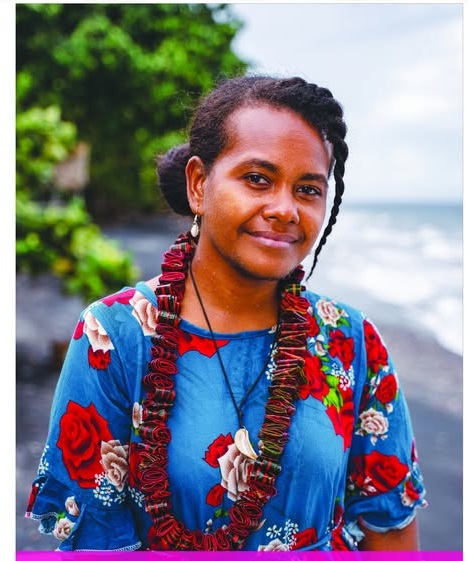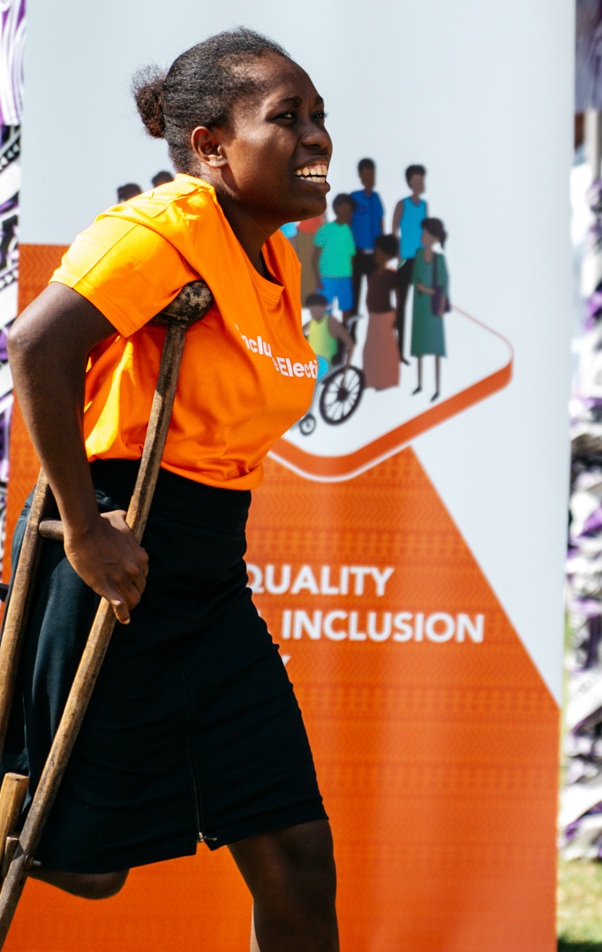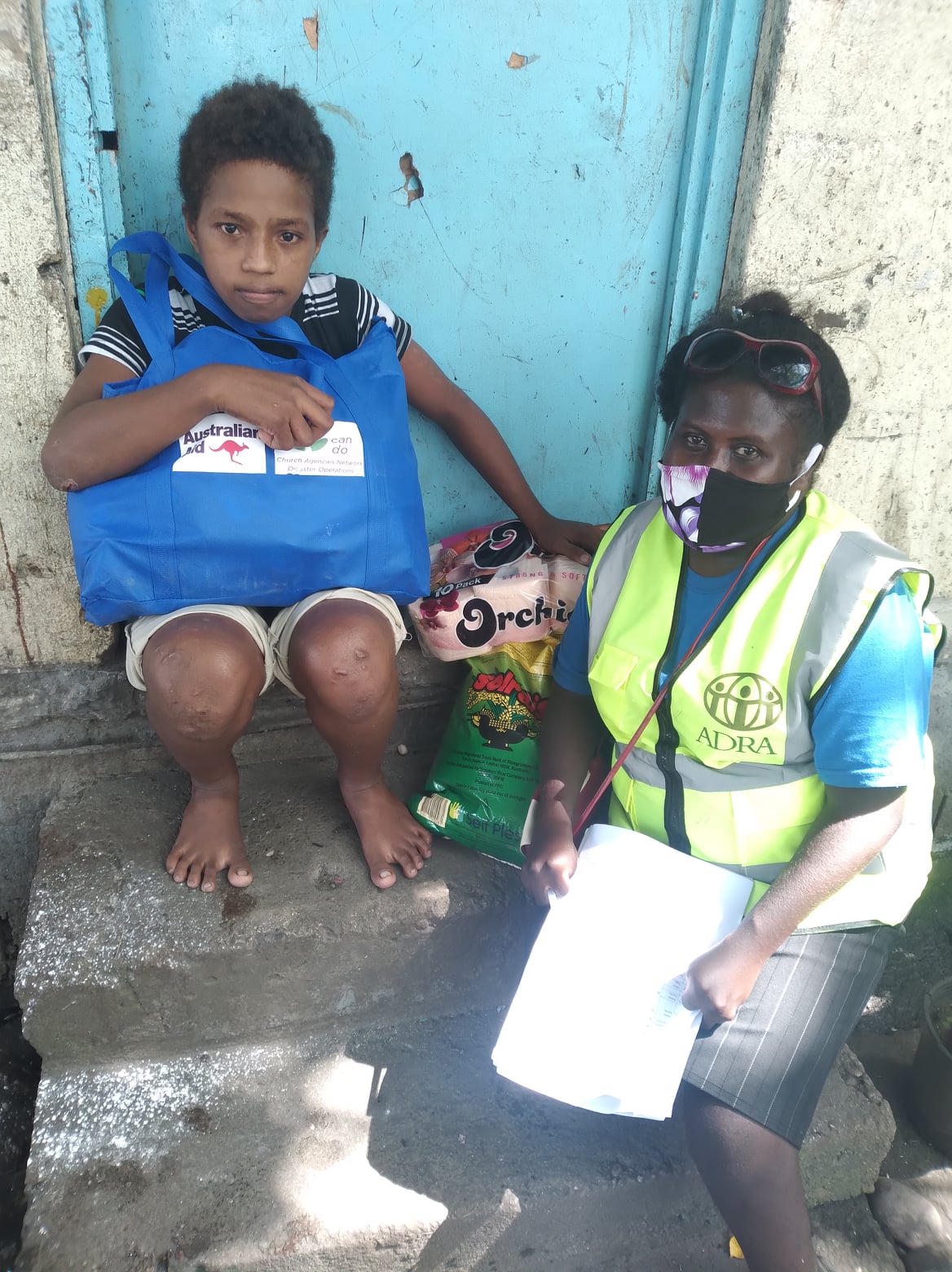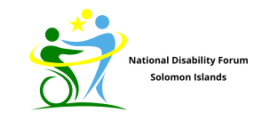The voice for Disabilities
About Us
Visions
A society in which individuals with disabilities actively and confidently participate in every aspect of life, where people with disabilities are participating fully in all aspects of society.



Our Goals
At NDFSI, we are committed to actively engaging our member organizations in the implementation of the UN CRPD. Our mission is to achieve equal participation of people with disabilities in society, and we will work collaboratively to make this vision a reality.
This will be delivered by:
- Advocating for policy change
- Recognition of the value of member organisations
- Fostering self-advocacy by people with disabilities
This work will be enabled by:
- Member organisations working collaboratively
- Continuous improvement of NDFSI structure, processes and resources
- Excellent communication
- Enhanced focus on our limited resources
Our aspiration is that our strategy, along with the work of others, will contribute to the following outcomes:
- Policy implementation developments at national level spanning income and access to community participation.
- Member organisations in a sustainable and stronger position to support people with disabilities to have a full life.
- People with disabilities being more active within their communities, as participants, advocates, and representatives.
Background of NDFSI & Brief History
National Disability Forum of Solomon Islands (NDFSI) is a Non-Governmental Organization (NGO). NDFSI is the central coordinating (umbrella) body of all DISABILITY organizations working in the Solomon Islands. It is an inclusive organisation which registered and represents a diverse group of people with disabilities and is the national organisation representing the voice of people with disabilities across the Solomon Islands.
The organisation brings together the voices and specific expertise of disability-specific organisations such as the Blind and Visual Impairment Solomon Islands (BVISI), Solomon Islands Deaf Association (SIDA), and Disability Women Empowerment Association (DWEA). We respect the diversity of people living with disabilities and promote the understanding that the voices of various disability groups and disability-specific groups have a vital place and one must not be silenced in favour of the other.
Brief History
NDFSI/DPASI was also a founding member of the Pacific Disability Forum (PDF), the regional focal body for disability which aims to build the capacity of OPDs across the Pacific. The Disability Movement was realized in the country using the Medical Model during the early 1930s through the establishment of the Leprosy Colony Hospitals both at Tetere on Guadalcanal and at Fauabu on Malaita Province. This was made possible from the Leprosy Trust to the Pacific of New Zealand during the Leprosy epidemic experienced in the then Solomon Islands British Protectorate.
A situational analysis forming the basis of a data for people with disabilities was based on their age, sex, types and causes of disabilities, available services and resources, their unmet needs, skills educational background, employment.
- Two main medical wards were established at the then National Referral Hospital (Namba 9). Hostels were established at Namba 9 providing shelter for those going under
- Rehabilitation programs, affected by polio one for males and one for the females.
- Polio String Band was the highlight then, which indicated the realization of the different abilities they had.
- The realizations of their right to freedom of choice among themselves begun to emerge which was indicated through them being able to marry and engage in social activities.
- Rehabilitation Work strengthen with services and the provisions of supplying crutches and development of prosthetics for rehabilitation purposes.
- Invention of wheelchairs was introduced by the Ministry of Health and Medical Services (MHMS) using local timber for seats and bicycle wheels for mobilization.
- Engagement of disabilities in businesses started with disabilities owning and running successful trade stores then.
- The introduction of Community Learning started at Harumou in West Are’Are by a person with a disability (Donation Kanai), given priority on the need for more organized community development awareness training to improve the Quality of Life a concept that gave birth to the now Solomon Islands Development Trust.
- The Solomon Islands Crippled Society was established with the support of the MHMS under the auspices of the Community Based Rehabilitation (CBR) Division and the Solomon Islands Red Cross Society.
- The Solomon Islands Handicapped Centre was established at the Riffle Range, west of Honiara.
- A Voluntary Work Force was established by the Crippled Society to developing a constitution for its registration under the Charitable Trust Act. Thank you for the Voluntary Work by those great leaders that have made the Disability Movement of what we are today.
- The work of CBR was strengthened than before with the establishment of an office with some concentration still on supporting the welfare of those with polio using the Disability Charity Model.
- Work on establishing a Constitution for the Disability became eminent and the Disabled People’s Association of Solomon Islands (DPASI) was registered under the Charitable Trust Act in October 2003, replacing the Cripple Society of Solomon Islands.
- In 2004/2005, a National Disability Survey (NDS) was conducted in all provinces of Solomon Islands. The survey was funded by the European Union through the Stabex 99 funding to the Solomon Islands Government (SIG), which helped to develop a basic data of the number of disabilities in the country and their needs. A Nation-wide Survey creating a baseline Data on the number of Persons with Disabilities was conducted and findings produced with a total of well over 24,000 persons with disabilities was recorded.
- The first National Policy on Disability 2005 – 2010 was formulated and approved by Cabinet in 2005. The policy was reviewed for approval of Cabinet in October/November 2022 which is the Solomon Islands National Disability Inclusive Development Policy 2023-2031.
- From 2010 onwards, it also uses the name People With Disability Solomon Islands (PWDSI) but it never registered this name but commonly uses this name during advocacies, marketing, and lobby purposes.
- The United Nations General Assembly adopted the Convention on the Rights of Persons with Disabilities in 2006. Solomon Islands Government signed the Convention in 2008 and its protocols in 2009. Policy 2023 – 2031 in November 2022. Solomon Islands Government ratified the United Nations Convention on the Rights on the Persons with Disabilities (UNCRPD) on 22nd June 2023 and was effective on the 22nd July 2023.
- A New Vision, Mission and Mandate was established which is to Advocate and Advice Government and Inter-government Agencies at national, regional, and international levels on policy and legislative issues affecting persons with disabilities.
- Regional and International relationship grows stronger than ever, and that gives DPASI/NDFSI as one of the founders of the Pacific Disability Forum of which it is also a member until today.
- There was increasing Educational Awareness Training Programs led by the DPASI/NDFSI and other OPDs to advocate for the needs of persons with Disabilities, Promote and Encourage the need for more recognition and support to persons with disabilities.
- A Draft Bill on the Protection and Promotion of Persons with Disabilities with Equal Opportunities, and respect for their Rights to meaningful participation in all spheres of development was designed by the Office of the Attorney General of Solomon Islands.
- Solomon Islands as a State is a signatory to UNCRPD to uphold the rights of people with disabilities and is therefore obliged to:
- Promote, protect, and ensure the full and equal enjoyment of all human rights and fundamental freedoms by all persons with disabilities and to promote respect for their inherent dignity.
- For the 2019 Census the SINSO was requested by the Government and stakeholders to collect information on disabilities in the Solomon Islands using the Washington Group Short-Set (WGSS) Questionnaires. The six questions asked were whether a person had any difficulties in seeing, hearing, walking, remembering or concentrating, self-care, and communicating. For each of the questions, each respondent had 4 categories of answers namely; `No’, `Some’, `A lot’, and `Cannot’. No means you do not have difficulties at all, Some means you have some difficulties, A lot means you have a lot of difficulties, and Cannot means you cannot do at all. For example, for example on the question of `do you have difficulties see? A person who is blind may answer `cannot’ since he/she cannot see at all. Overall, about 11% of the total population reported a disability, and the proportion of females with a disability was slightly higher than that of males.
In May 2024, during an Annual General Meeting (AGM) of the organization, they adopted a new constitution with the new name National Disability Forum of Solomon Islands (NDFSI) and by the beginning of 2025, the NDFSI was legally registered replacing the name DPASI.
